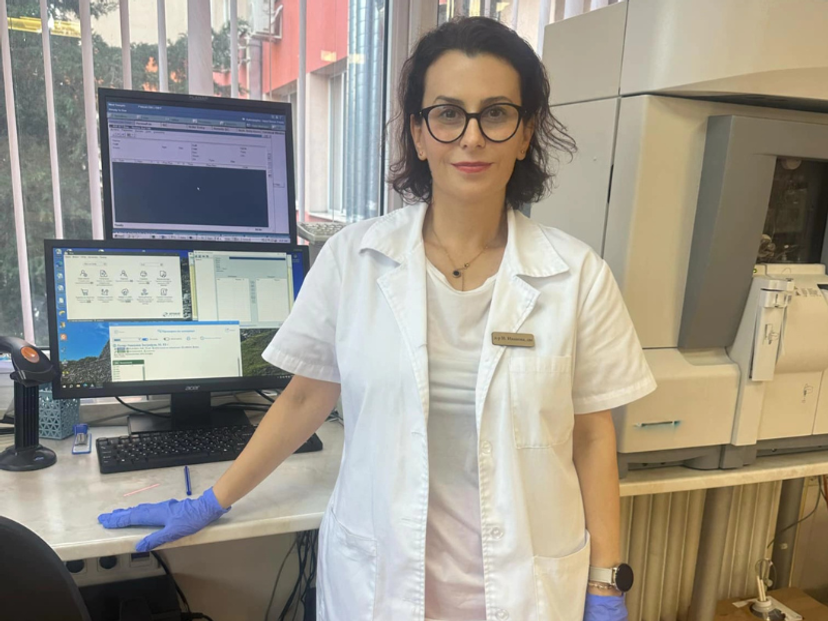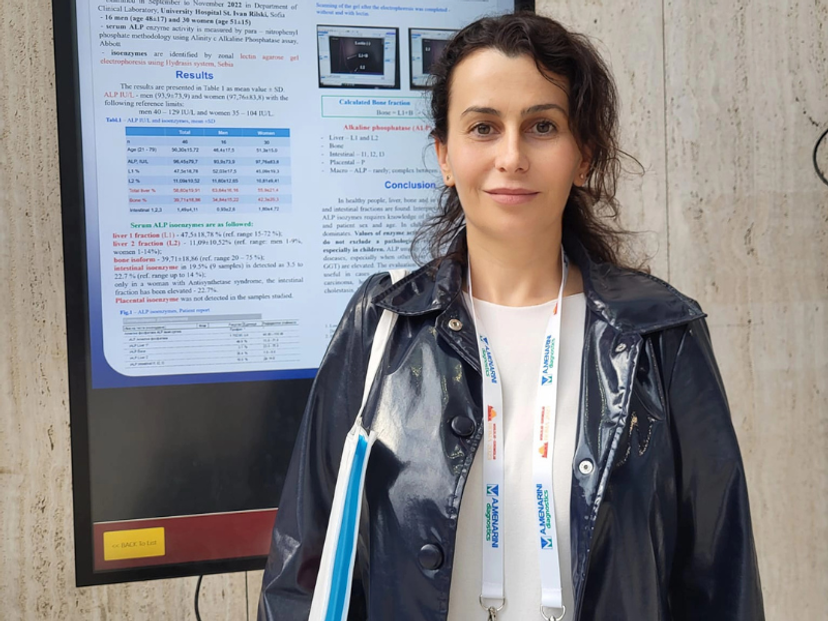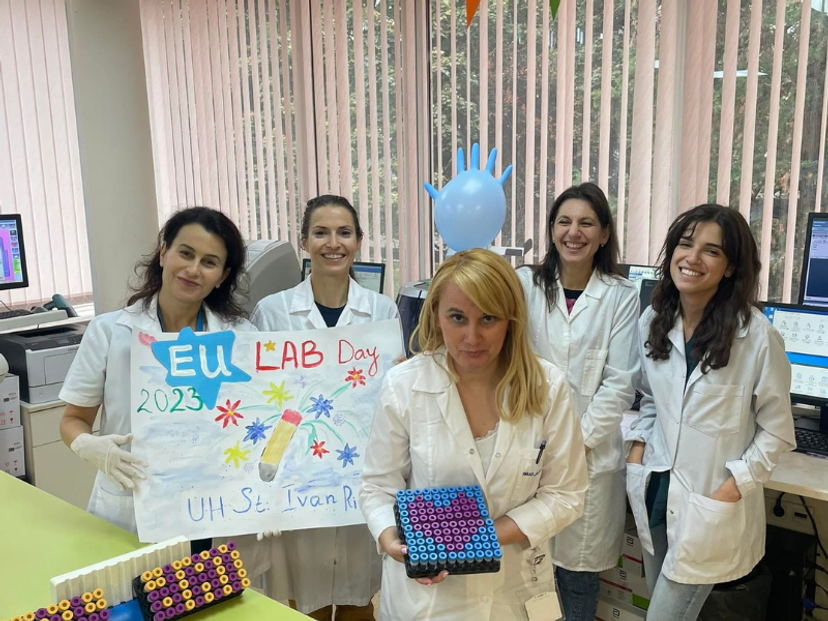24 hours in the life of a medical doctor in Bulgaria
30 Oct 2024
Irena Ivanova, St. Ivan Rilski University Hospital, Medical University of Sofia, Bulgaria
In this guest blog post, Irena Ivanova describes her role as a medical doctor and associate professor of the clinical laboratory at the St. Ivan Rilski University Hospital, Medical University of Sofia, Bulgaria. Find out what inspired Irena to become a doctor, discover what drives her ambitions and the challenges she faces along the way.
Allow me to introduce myself
To be a medical doctor was my childhood dream, from when I was a very little girl. Maybe because of my mother’s illness, or maybe because my ideals were formed by Irwin Shaw's heroes – with a very difficult start but being strong enough to get all the way to the top. This ambition, to be a doctor at the top, lights my professional path all the time and it makes me eager to gain knowledge and skills, to cure sick people and bring back the smiles on their faces. This is my ambitious even now, to get to the top and to help others.
I have had a chance to work in my beloved field of medicine over the years, intertwined with science and art. I completed my doctoral thesis on "Copper – physiological mechanisms and clinical application in some pathological conditions" working jointly with Prof. Rosanna Squitti's team in Italy, and Rome became my second home. Later habituation drove me to my current position as a professor at the Medical University of Varna 'Prof. Dr. Paraskev Stoyanov' and lecturer at Sofia University 'St. Kliment Ohridski' in Sofia, Bulgaria.

About my job as a medical doctor
I work in the Clinical Laboratory Department of St. Ivan Rilski University Hospital, Medical University of Sofia, Bulgaria. I've been the head since 2009, and the lab is growing and updating before my very eyes, just as I had dreamed as a child. Together with my team, we introduce new lab tests into daily lab practice, implementing advanced technologies even using artificial intelligence, computerization and modern diagnostic approaches in our work with patients.
A typical day for me as a medical doctor
My typical day starts early in the morning, with a kiss to my two children. I drop them off at school on my way to the hospital. Listening to music in the car during this time is a real pleasure – this is my 'happy hour'.
As soon as I get to the lab, all my attention is focused on my professional duties and my patients. I go through all the lab departments and check everything: clean rooms, equipment and machines are in proper functioning mode, and of course that the people in my team are ok. I have the same important thoughts about our patients: making sure they receive not only highly professional medical care, but that they also feel our concern and humanity.
The patients are from all the hospital clinics, sometimes they are too young and with severe diagnoses, and it hurts. But these sad moments are scattered quickly as I remember: “We should be very grateful for every day in our life and much better to be humble and be good people all of the time!” I try and also ask my lab people to be very careful with our patients to help them to feel more comfortable.

Irena Ivanova and her team at the St. Ivan Rilski University Hospital, Medical University of Sofia, Bulgaria
Lab management takes a big part of my time, but I am also engaged in specialized analyses of the daily workflow. Electrophoresis is my favorite: the findings after protein separation require very high levels of interpretation, almost art in medicine. I try making conclusions, very closely situated to the 'true value' of this lab approach. I firmly believe it is extremely useful for the patients’ diagnosis and treatment in very serious diseases.
New technologies and future
Lab life always goes hand-in-hand with advanced technologies: informatics, automated validation software, methods based on artificial intelligence and high automation. My biggest challenge is to motivate all the team to believe that the right way is striving to be the best in our work, in the most accurate and fastest manner. We have a chance to install the latest technology achievements, even before they are distributed to other labs. And the efforts of my lab people make me glad – we work hard and cooperate as a team.
A few months ago, I completed an 'Artificial Intelligence in Healthcare' course at MIT- Massachusetts Institute of Technology. It was very exciting to learn that the new future technologies are coming in lab medicine: 'smart tubes' with chips, drones in sample transport, quality control software, wireless tracking patient compliance with therapy, exoskeletons and brain chips – a whole galaxy of new possibilities, still being developed and still being refined in terms of social relevance, accessibility and entitlement.
The new world is already peeking at us – cyber dogs, domestic robots, flying taxis … New technologies in medicine would change the life of many people, and now we live in the era of significant transformation in the clinical laboratory and medicine: transformation as practice but also transformation in our thinking as specialists.
Biggest challenges as a medical doctor
The challenges are everywhere in lab practice: safe care for the patient with accurate results, fast release; to predict the patient risk and even, if it is possible, to foresee the future! New markers and technologies are the lab tools, but many studies and efforts are necessary to introduce the future of 'individualized medicine' for every single patient. And the most important thing – the trust, a completely human trait, we must care about with responsibility. Trust between all medicine colleagues and trust between the patient and medicine specialists.
And lastly, the time is going very quickly. As medicine specialists we are familiar with the current requirements for good laboratory practice and future perspectives, but it is crucial in our profession is to be responsible and diligent, to provide care and have a professional practice manner that we would want for ourselves. All patients deserve our very best!
